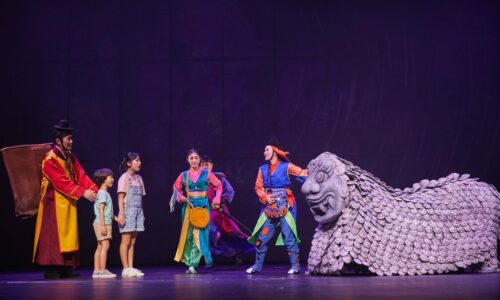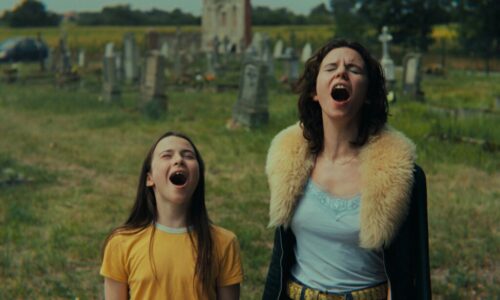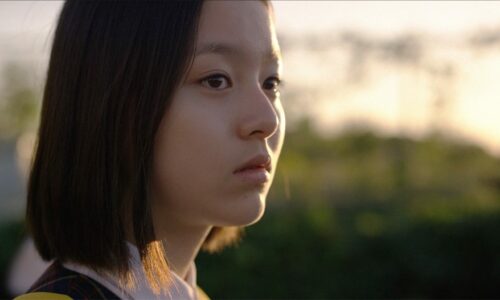It is sometimes a journey that can change everything and in this film there are even two journeys. One journey begins with a trip from France where a mother (Ane, played by Patricia López Arnaiz) travels with her 3 children to her home in the Basque Country (autonomous region in northern Spain) to spend the summer vacations as well as attend a baptism. At the same time, she escapes from the relationship, because the parent is on the verge of separation.
The other journey revolves around one of the children, 8-year-old Aitor (Sofía Otero). He is in a very active self-discovery phase and would much rather be a girl. He is very unhappy with his name and prefers to be called Coco, which his siblings like to make fun of.
Accordingly, he often seems reserved, his looks are always in search of something he does not understand or can classify. If his mother asks him what is wrong with him, he becomes quiet and claims that everything is already ok, just to avoid further questions.
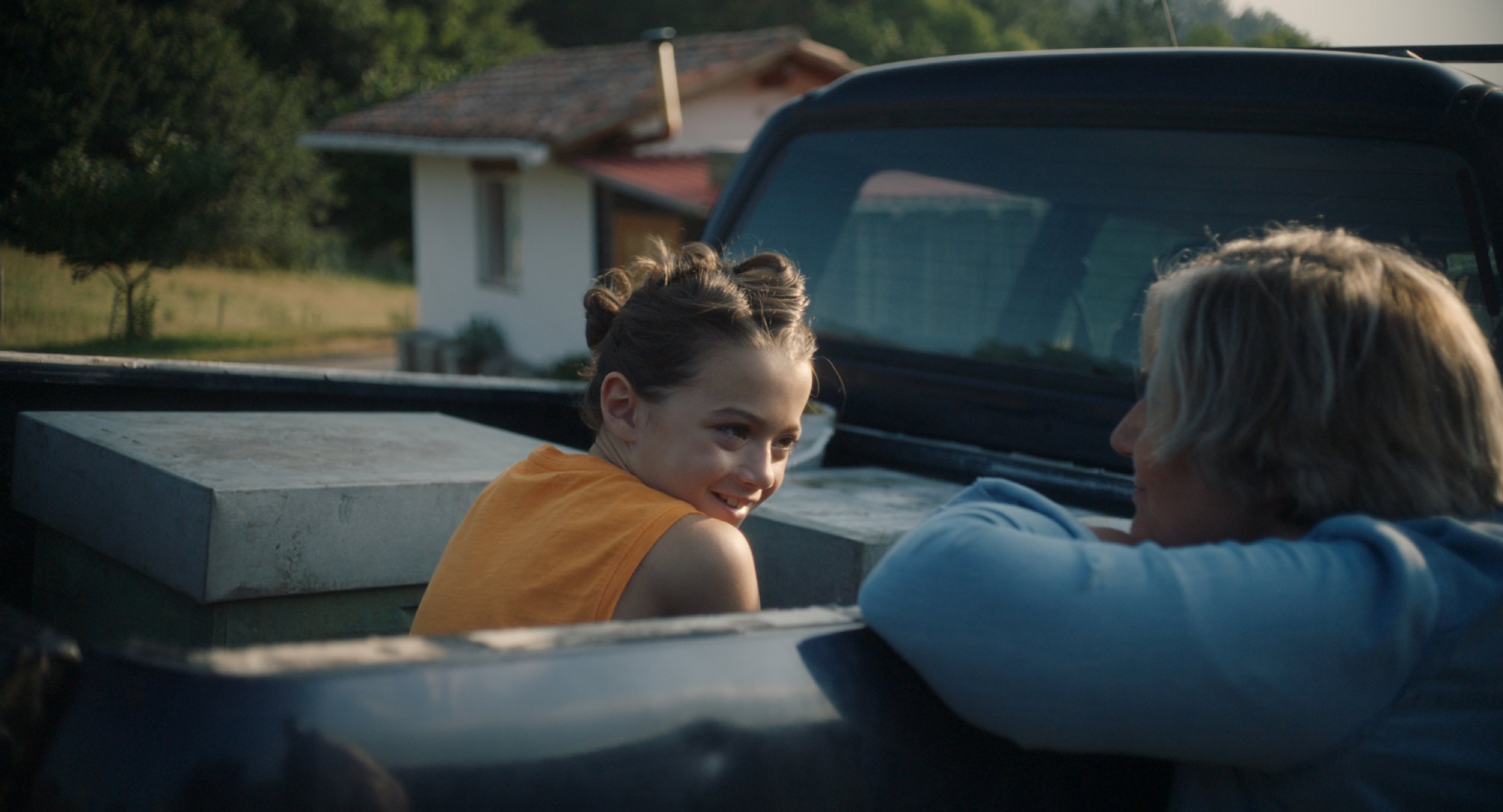
When they reach their destination, the family first stops off at the grandmother’s house. Here, too, there is a certain tension between Ane and her mother. On the one hand, because her daughter rarely shows up, on the other hand, she criticizes the strange appearance of Aitor and then also the separation that is in the room. While the children can develop quite freely on the following days, Ane retreats to an old garage that once belonged to her father. Ane wants to create a new work of art to apply to an art school in Spain, while the rest of the family is busy preparing for the christening.
Aitor gets a pretty good connection to great-aunt Lourdes (Ane Gabarain), who lives alone and takes care of the beekeeping that has been in the family for generations. She takes Aitor to the bees again and again and so, in the course of the story, she becomes the first adult person to recognize what is really going on in Aitor and to perceive the boy as a girl, even daring the child to ask a very moving question: “Why can’t I die as a boy and be reborn as a girl?”.
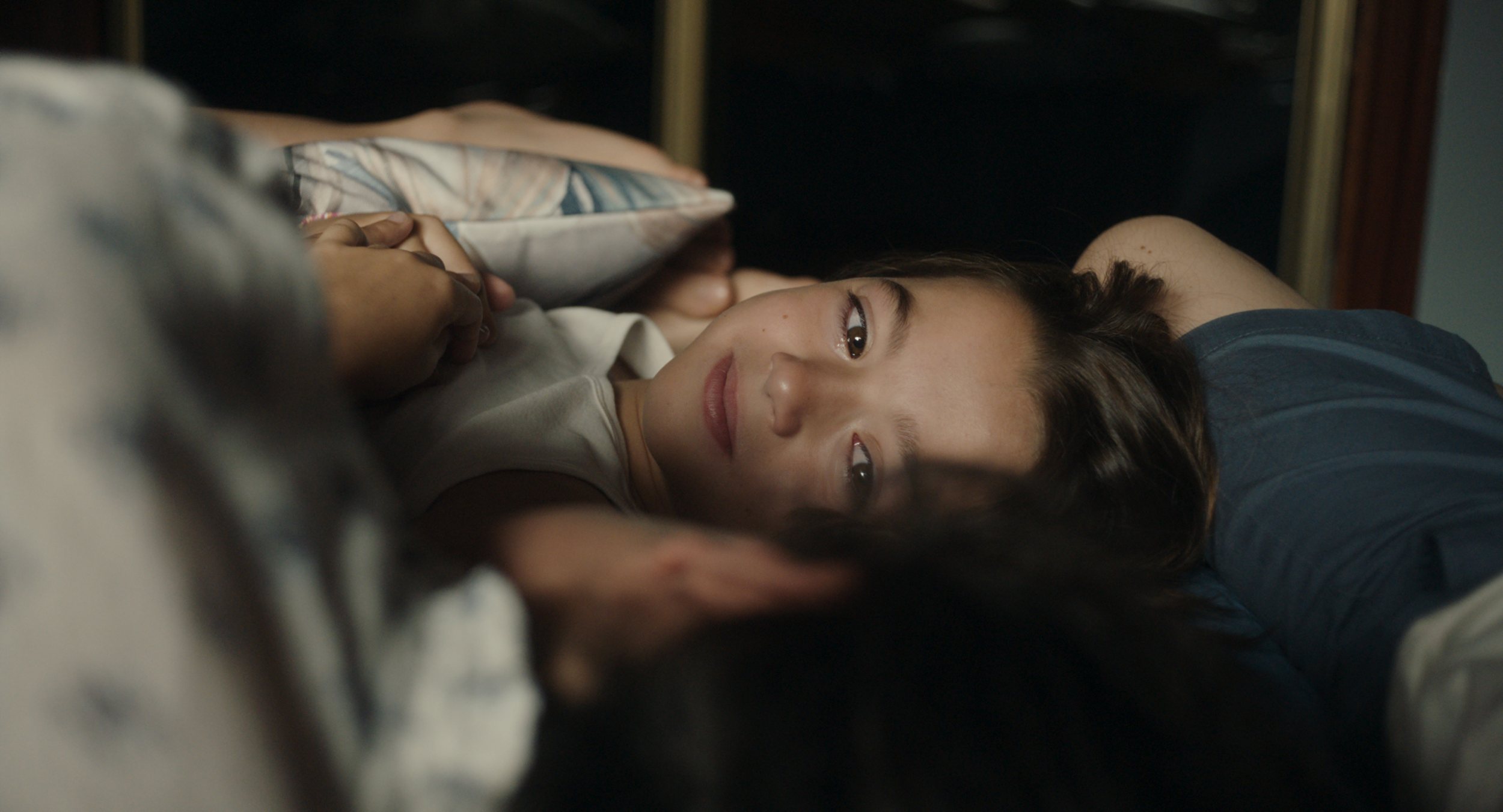
His great aunt lovingly tells her that she is a beautiful child and that you don’t have to die to be what you want to be. At a later point, she confronts Ane with all her observations and urgently advises her to talk to her son about his feelings. This advice is taken to heart by the mother, who finally manages to break the ice with her son. This leads to wonderful dialogues in which the child questions “Why do you know who you are, but I don’t?” or expresses “I don’t want to be like Dad”. Moreover, Aitor asks to be called Lucía from now on. But with this coming of age moment comes a whole new set of challenges within the rather strict religious family culture.
Conclusion:
We often present ourselves as an enlightened modern and open society, but in many cases have a hard time doing so when it comes to issues that are ubiquitous but outside our comfort zone. One of these topics for many is certainly transsexuality. When we hear this term, we like to think of adult people who feel trapped in the wrong body, but this feeling often begins much earlier and thus also a long path of suffering for children and this is exactly what this film deals with.
This work accompanies an already existing suffering of an 8 year old child who feels trapped in the wrong body. The feelings on the part of Aitor are initially subtle, but the call for attention and the search for help are steadily growing louder. But in the end, as so often, it is the “all-knowing” adults who do not understand (or deliberately overlook) those signals, until someone from the outside comes to call the child by name (please forgive the pun).
Fortunately, this film can, unlike the German film, the subject much more emotional and honest approach than in the attempt to squeeze the whole thing into an unnecessary comedy, so that many German go to the movies and yes, I allude here to “Oscar’s dress”, which I have not yet seen. However, the trailer already says a lot about where the journey is going with this work.
In the end, this film is not quite perfect either, because it seems a bit artificial that only towards the last third of the film from one moment to the next the aha effect occurs with the mother, who has so far quite skillfully overlooked all signs and from now on becomes a strong family rebel, but in the decisive moment she is again not at the side of her child only to create another emotional climax for the film.
Actors:
Sofía Otero (Lucía)
Patricia López Arnaiz (Ane)
Ane Gabarain (Lourdes)
Itziar Lazkano (Lita)
Sara Cózar (Leire)
Martxelo Rubio (Gorka)
Director:
Estibaliz Urresola Solaguren
More about the movie:
https://www.berlinale.de/en/2023/programme/202307206.html
Trailer / film clip:


